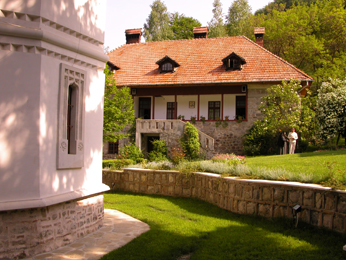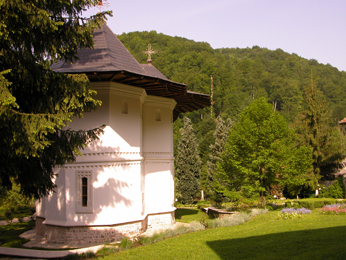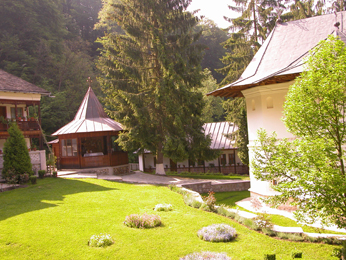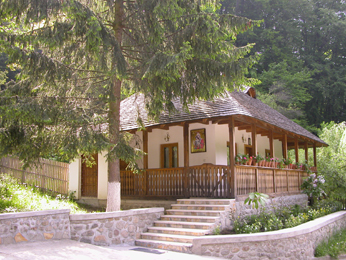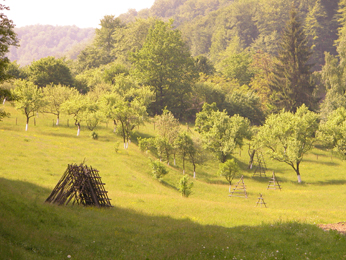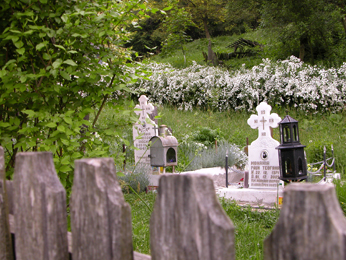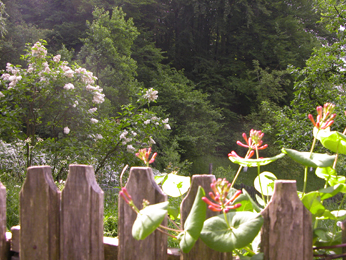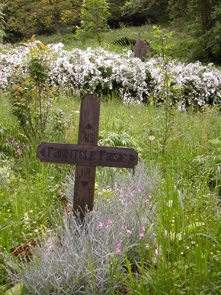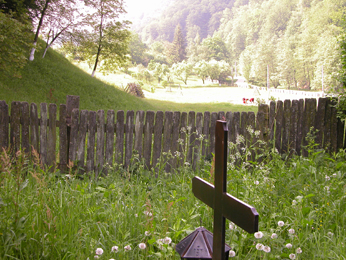The Samaritan Woman ( 21.05.2009 )
“If you knew the gift of God, and who it is who says to you, ‘Give Me a drink,’ you would have asked Him, and He would have given you living water… Whoever drinks of this water (ordinary, natural), will thirst again, but whoever drinks of the water that I shall give him will never thirst. But the water that I shall give him will become in him a fountain of water springing up into everlasting life” (John 4:10; 13-14).
The water the Godman Christ gives us, having which we will never thirst again, is the grace of the Holy Spirit in our heart. This grace in us can also become a fountain of grace that leads us into eternal life provided that we purify and open our heart. Our heart is the place from where grace springs up, it is the spring. The opening of the place should be first sufficiently cleansed from the filth of the passions, from the deposits of sin, and from the demon’s presence, in order for the grace to gush forth. the springing up of grace i.e. the acquisition and discovery of living water, manifested as mind-and-heart prayer, is a gift of God—the water that I shall give him. Afterwards we do not need a spiritual guide; grace will lead us itself—water springing up into everlasting life. Springing up or manifestation of grace is a testimony that we are no longer hired servants but children of our Heavenly father. A testimony that we have personally adopted the gift of God and we exist as persons. A testimony that we are adopted by the Father and we act in the power of a person.
“Sir, give me this water, that I may not thirst, nor come here to draw” (John 4:15).
Therefore “the hour is coming, and now is, when the true worshipers will worship the Father in spirit and truth; for the Father is seeking such to worship Him. God is Spirit, and those who worship Him must worship in spirit and truth” (John 4:23-24).
True worshippers will worship the Father in the grace of the Holy Spirit and in confession of the true faith. Worship in spirit and truth is one and the same worship, one and the same action, one and the same grace. And it takes place at one and the same place—in the heart, first of all.
The grace of the Holy Spirit, the Lord, from the hour of our Baptism is inside our heart. However, only to be baptized in the Church is not enough for us to worship God in spirit and truth, but it is also necessary that we activate and actualize the grace of Holy Baptism. If one should like to find out what this means—that is, if one should like to discover the fountain of living water that springs up into everlasting life, let him enter under absolute or wholehearted obedience to Christ’s commandments i.e. to the Church i.e. to the Holy Tradition i.e. to his spiritual father. For us this and nothing else is the meaning of the words “I have food to eat of which you do not know… My food is to do the will of Him who sent Me, and to finish His work” (John 4:32; 34).
The Holy Fathers sometimes use the term ‘spirit’ for the mind. In the biblical-anthropological sense the worship in spirit and truth means worship with a healed mind. He has a healed mind who has united the energy of his mind with the essence of his mind, which is in the heart. Since this union is a work of God’s grace and it happens prayerfully-ascetically within God’s grace, healed mind in certain sense is the same as illumined mind. Provided that this union is permanent graceful rather than temporary ascetical, then healed mind is the same as deified mind. The deified mind is a mind guided by the Spirit into all truth (see John 16:13). Only him who has a healed, deified mind we can call chaste and virgin, in a human dimension of these notions.
I said that confession of true faith, too, is a fruit of grace. The confession of true faith has its theoretical, dogmatic and its practical, ascetical part. It is a must that we believe in and confess the true, Orthodox faith and it is a must that we live by the rule of faith—to bring into line the mode of our life and struggle with the level of our spiritual age. And vice versa, since it is one and the same grace, the life and struggle in line with the rule of faith lead to knowledge of God and confession of the true faith, to experience of God poured into the Orthodox formulation and confession of dogmas, which is more knowledge than faith. “Now we believe, not because of what you (or anyone) said, for we ourselves have heard Him and we know (from Him personally) that this is indeed the Christ, the Savior of the world” (John 4:42)—say the villagers to the Samaritan woman. And elder Sophrony says, “Knowledge of God comes from life in God, which is born in the deepest place of the heart” (Elder Sophrony, Words of Life, p. 41).
The practical, ascetical part includes also true faith in the sense of trust in God. God first affirmed His trust in us by granting His love to us; He granted us existence, life, and rationality; He granted us His entire Dispensation of our salvation and Himself; He granted us the Orthodox Faith; He granted us the Orthodox Church; He granted us repentance and, I would say, the infinite forgiveness of sins. God loved us first… (see 1 John 4:10). It is our turn.
And we know that it is our turn, yet do we know how and from where to start? Will we decide for once on using our will seriously and persistently for our repentance? I believe we can find the dialog of the Godman Christ with the Samaritan woman a great consolation and a great hope—she was a sinful woman, a woman with distorted faith, a woman whose state resembles in all the state of our soul: “You have well said, ‘I have no husband,’ for you have had five husbands, and the one whom you now have is not your husband; in that you spoke truly” (John 4:17-18). A great consolation and a great hope is the fact that the Lord Jesus Christ gives everyone a chance for repentance and personal meeting and union with Him. Let us start from ourselves. If you agree with me, then let us start with mourning or let us exert ourselves to mourn, because this is the gift of living water that leads to everlasting life correspondent to the level of our spiritual development at which we free our heart from the captivity to passions.
O Lord, You gave me dry land, give me also springs of water (see Judges 1:15).
Metropolitan Nahum of Strumica
